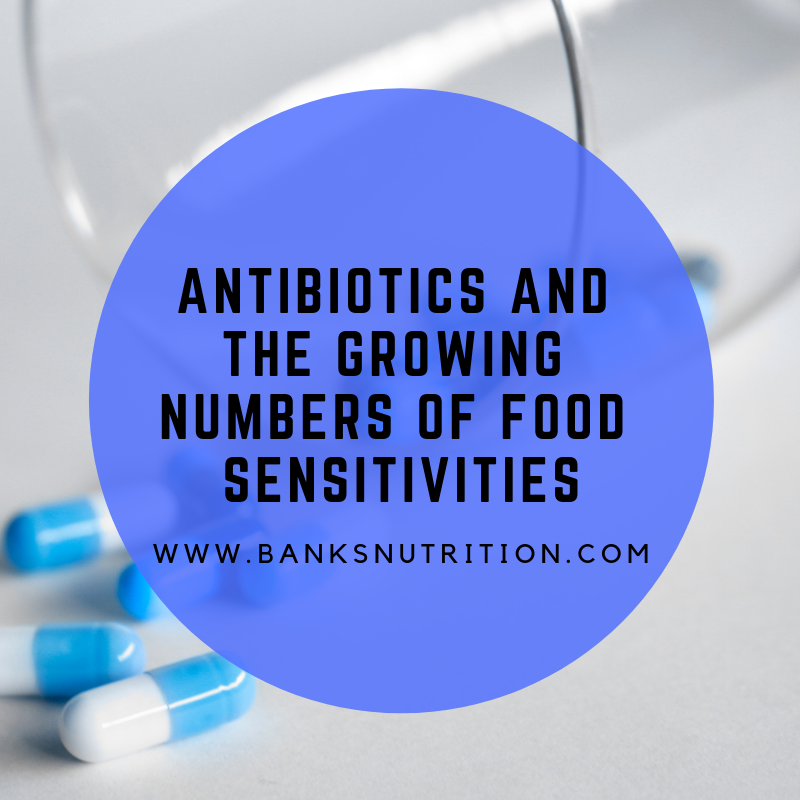
Antibiotics and the Growing Numbers of Food Sensitivities
August 2, 2012
-
Immune tolerance
-
Antibiotics are being fed to animals in the food industry
-
Chronic alteration of the bacterial population in the human gut is an important factor in the growing epidemic of food sensitivities
-
Chemical additives in food or by other exposure stress the immune system
The human immune system has the task of sorting through an immense number of protein and other substances to determine which belong to “friend” and which belong to “foe”. The importance of this sorting is it governs the process of “immune tolerance”. Immune tolerance is the process of developing immune cells which have marked friendly proteins such as those in food so that an allergic attack response does not occur.
This process of immune tolerance is proving to be governed by a symbiotic or cooperative relationship between our own immune cells and the normal bacterial population living in the digestive tract. Recent understanding has suggested that the normal “probiotic” bacteria that should reside in the human digestive tract play a key role in helping mark food substances as “friend” making the task of developing immune cells that recognize these proteins and substances easier.
A new study looked at this process and suggests that the role of the probiotic bacteria is perhaps greater than previously appreciated. The study subjected mice who exhibit similar immune behavior to humans to the antibiotic erythromycin and then to a diet containing dairy proteins. The antibiotic treated mice exhibited important decreases in the immune cells that mark the dietary proteins as “friendly” compared to the control mice which did not receive antibiotics. The decrease in the ability to appropriately differentiate dietary proteins as friendly correlated with the level of diminished Lactobacillus probiotic population in the intestines.
While the study suggests that much greater caution needs to be exercised with human medical antibiotic use, the largest problem is unknown to most adults. About 80% of all antibiotics used in the United States are fed to animals in the food industry. Regular, heavy antibiotic use in the feed given these animals makes them grow faster and ultimately heavier. The problem is that there is a huge amount of antibiotic pass-through to food consumers from meat, egg and dairy product. Food pass-through antibiotic exposure now exceeds that from medical use.
It is likely that chronic alteration of the bacterial population in the human gut is an important factor in the growing epidemic of food sensitivities. It is facilitated in causing the problem by the growing amount of genetically modified food and the high use of chemical additives in food. The human immune system learned to recognize food proteins as friends over thousands of generations of food exposure. While genetic modification has been around for a couple of decades that is less than two human generations and has not allowed time for immune adaptation.
Chemical additives in food or by other exposure stress the immune system by greatly increasing the amount of foreign material it must police and sort as “friend” or “foe”. This immensely bigger task in our modern chemical based world is thought to be a major factor in the autoimmune disease epidemic.
The FDA gave some lip service to the problem in 2011. They issued a “guidance” which asks the food industry to voluntarily stop using antibiotics in animals used for food source. The rationale given for the issuing of a guidance rather than a regulation, “it would take too long and cost too much”. If voluntary guidance was enough to change food industry behavior, I guess we wouldn’t need the FDA in the first place. This was the equivalent of answering a difficult question of a child with “go ask your father”.
What steps should we take away from all of this?
-
Limit medical antibiotic use true necessity
-
Eat antibiotic free foods
-
Eat as much real, non-chemical food as possible
-
Consider using a good broad spectrum probiotic supplement
-
Increase probiotic use with any antibiotic use